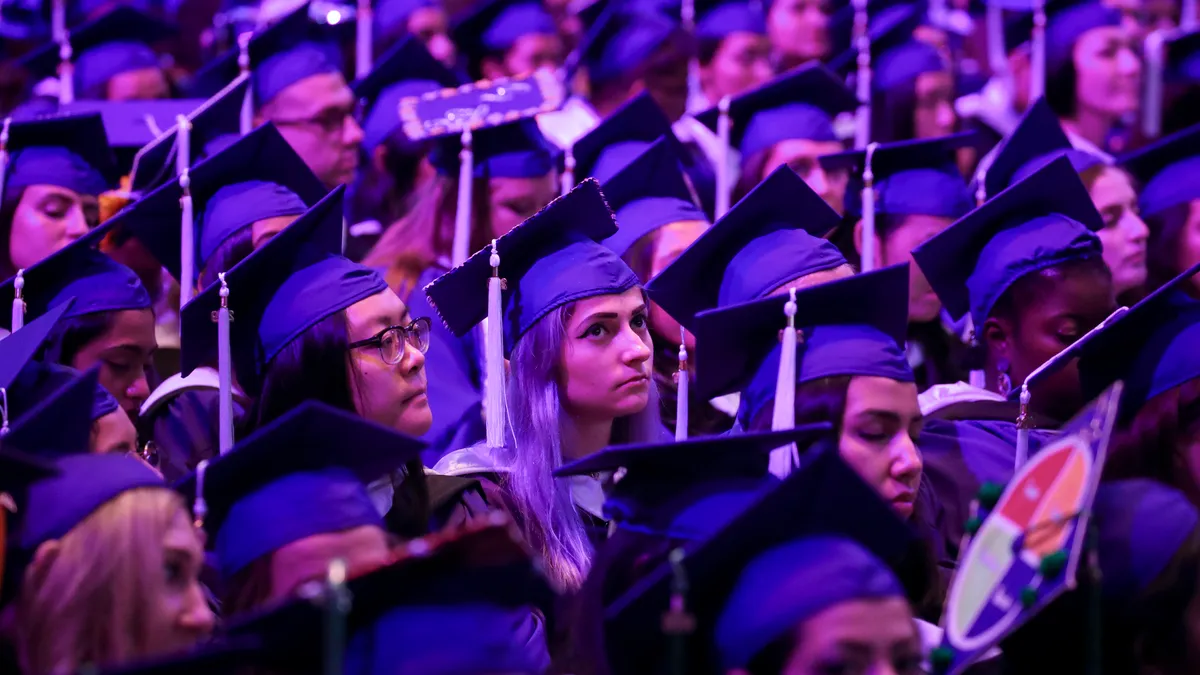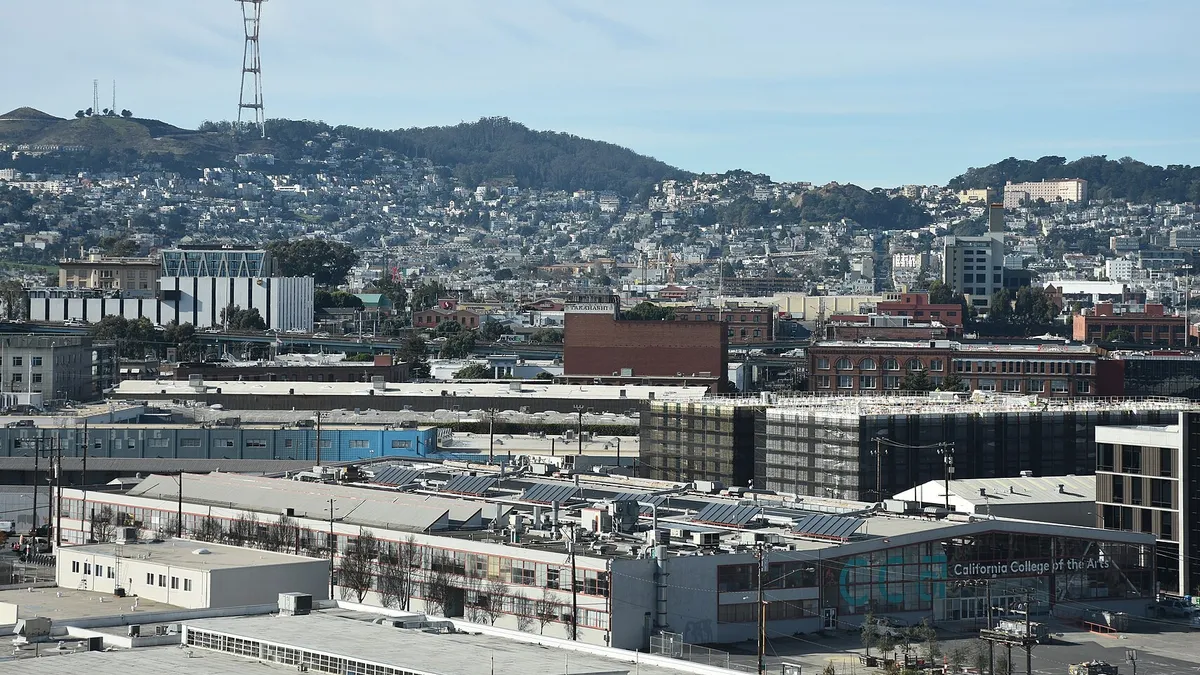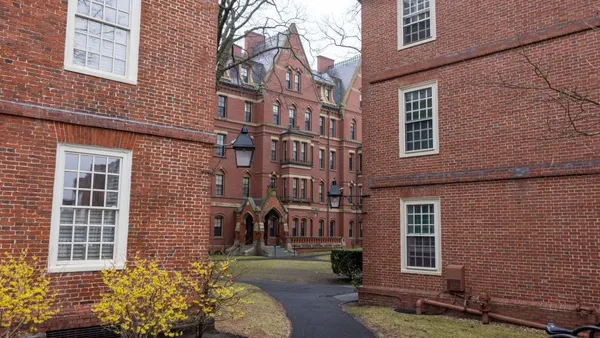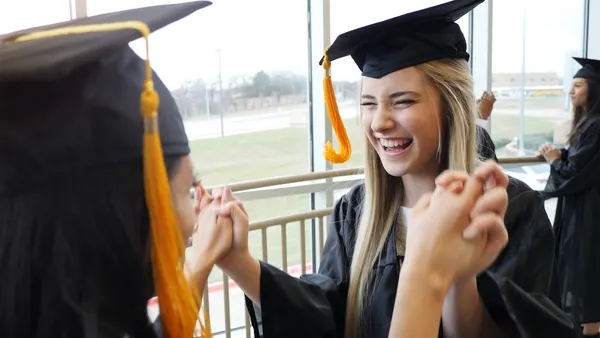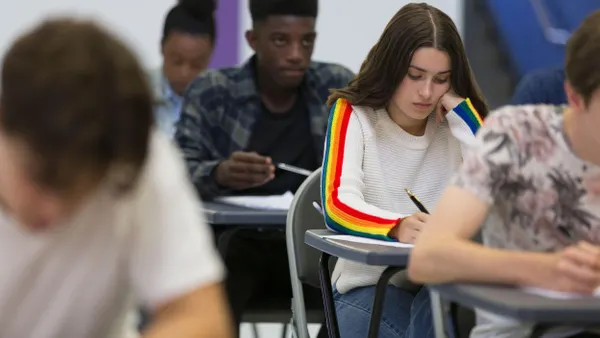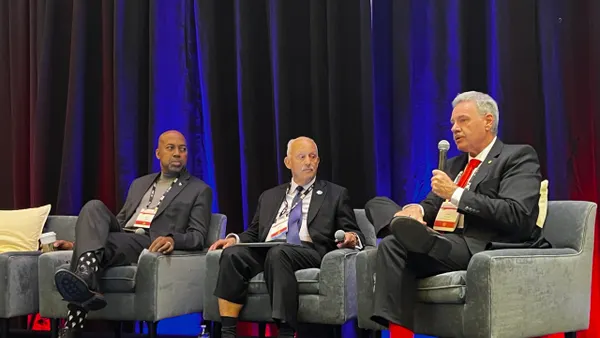Dive Brief:
- Young college graduates are now spending more time unemployed than job hunters with only a high school diploma, according to an analysis published Monday.
- Researchers at the Federal Reserve Bank of Cleveland found that, from June 2024 to June 2025, 37.1% of unemployed workers between the ages of 22 and 27 with at least a bachelor's degree either found work or stopped looking for work each month. That’s compared to 41.5% of their peers who only completed high school.
- Their report comes amid other signs of a tough job market for recent graduates. The most recent unemployment data from the U.S. Bureau of Labor Statistics, released Thursday, shows 9.7% of bachelor's degree holders ages 20 to 24 were unemployed in September — up from 6.8% a year prior.
Dive Insight:
A college degree still provides young workers with economic and professional advantages, the Cleveland Fed analysis found. Once employed, college graduates earn more than their degreeless counterparts and experience increased job stability, it said.
However, researchers pointed to signs that some of the job market advantages of a college degree are eroding.
For decades, workers with a high school degree typically saw unemployment rates about 5 percentage points higher than college graduates did, according to the analysis.
That gap temporarily widened during the 2008 financial crisis, when high school graduates had a particularly difficult time finding work.
But the Great Recession obscured that the gap in job-finding rates between high school graduates and those with four-year college degrees had been slowly closing since the turn of the century, according to the Cleveland Fed researchers.
With brief exception during the pandemic, the unemployment rate gap between the two groups has slowly shrunk since 2008.
In July, the 12-month average unemployment rate for young college graduates stood only 2.5 percentage points lower than that of their peers without a postsecondary degree. That's the smallest gap since the record low of 2.4 percentage points in March 2024.
That slim difference, combined with the delay in degree-holders getting hired, indicates "that a long period of relatively easier job-finding prospects for college grads has ended," researchers said Monday.
"The labor market advantages conferred by a college degree have historically justified individual investment in higher education and expanding support for college access," they said. "If the job-finding rate of college graduates continues to decline relative to the rate for high school graduates, we may see a reversal of these trends."
The pandemic resulted in a tight labor market, but the Cleveland Fed researchers said their findings can't solely be attributed to the long-lasting disruptions of COVID-19.
"If historically tight labor markets drove narrowing, the high school job-finding rate should have risen to match college rates rather than a decline in the college job-finding rate," they said.
The decades-long trend also predates the influence of artificial intelligence on the job market.
Instead, the researchers noted that the timing correlates with a broader market shift from "college-biased to education-neutral growth in labor demand."
"Declining job prospects among young college graduates may reflect the continued growth in college attainment, adding ever larger cohorts of college graduates to the ranks of job seekers, even though technology no longer favors college-educated workers," they said.
However, older degree-holders are not seeing the same stark unemployment numbers.
In September, 3.6% of bachelor's degree-holders ages 25 to 34 were unemployed, according to BLS data. That's well under the overall unemployment rate of 4.4%, which is the highest it's been in four years.


